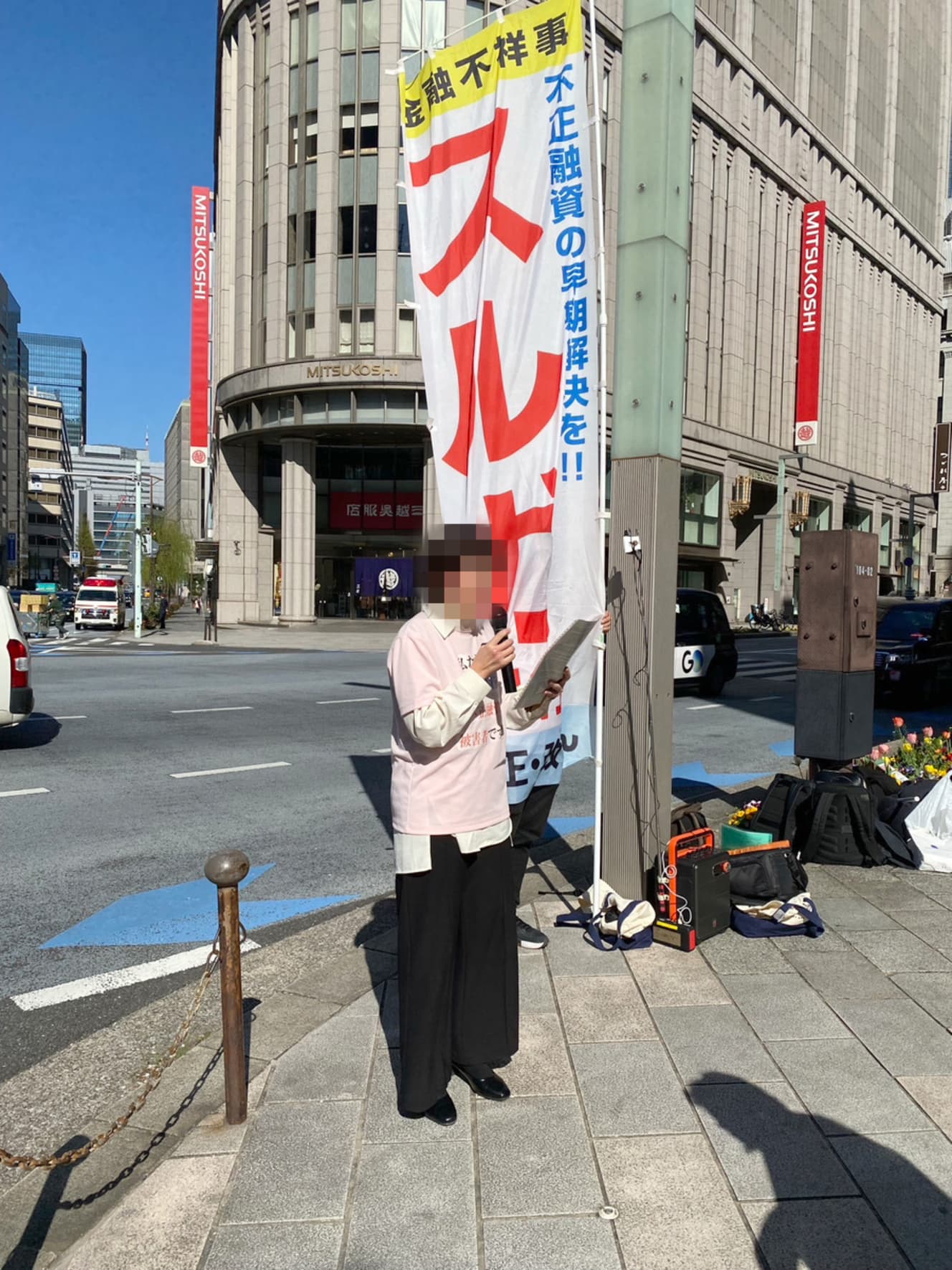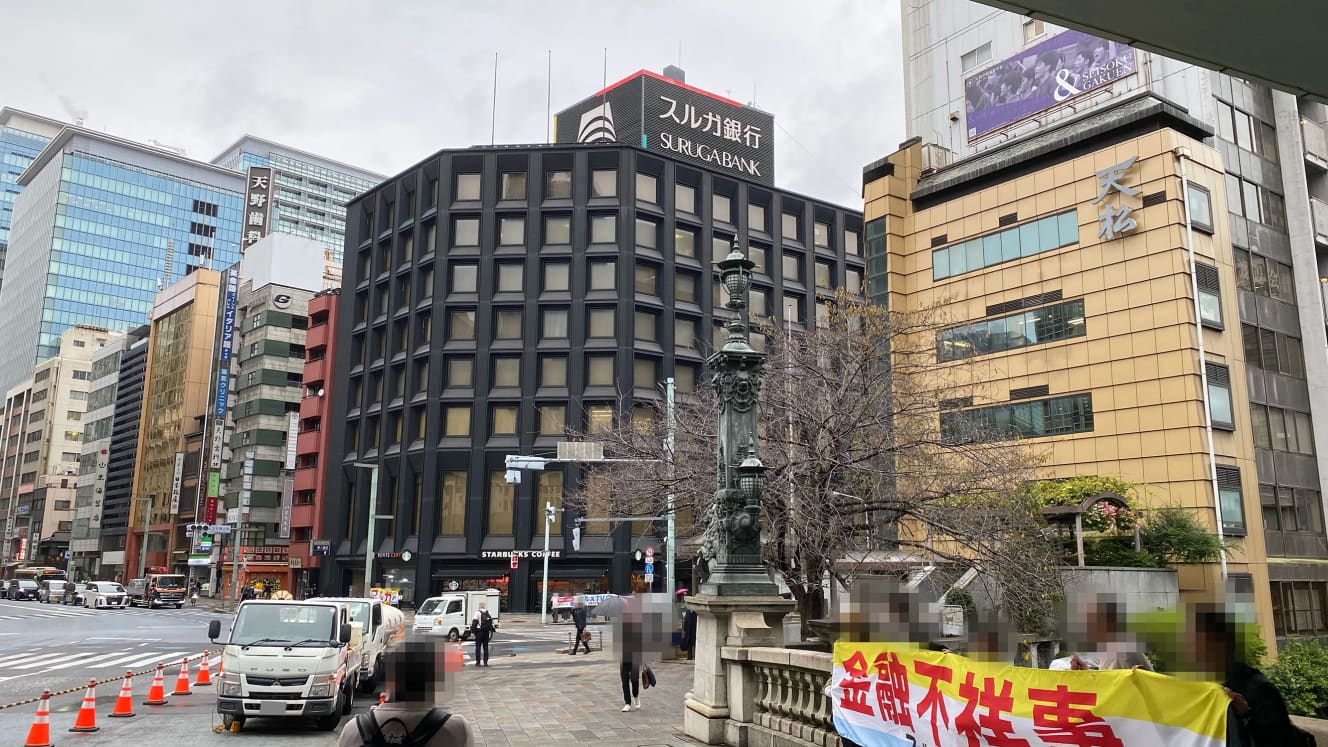Ongoing Lawsuits and Suffering of Victims in Suruga Bank and Apartment Loan Scandal
In contrast to the Pumpkin Carriage
The Suruga Bank’s massive fraudulent loan incident — commonly known as the “Pumpkin Carriage Incident” — involved around 1,200 properties and a total damage amount of 165 billion yen, which the bank wrote off. A settlement was reached in 2020, with the bank agreeing to pay a resolution amount through a civil mediation process. By 2022, all cases had been settled.
The shock of this scandal involving a regional bank was significant, and there were many voices questioning the responsibility of the Financial Services Agency. However, three years later, Suruga Bank is still embroiled in a prolonged court battle over another fraudulent loan issue. The victims of fraudulent apartment and condominium loans (referred to as apaman loans) continue to speak out.
Since 2014, Suruga Bank and real estate companies have been recruiting investments for local condominiums, assuring clients that there’s no need to pay back the principal. However, what was actually happening was fraudulent behavior such as falsifying bank balances to obtain loans, selling properties at inflated prices, and fabricating rent rolls (documents showing rental income) by claiming full occupancy when there were vacant units. What differentiates this from the “Pumpkin Carriage Incident” is that the bank and
The victims are still at an impasse, with their claims remaining unresolved.

According to the website of the “Suruga Bank Fraud Loan Victims Alliance,” which was founded in May 2021, the total damage claimed by alliance members exceeds 70 billion yen. The number of loans suspected of being fraudulent amounts to 8,433. However, fewer than 1% of these cases have been resolved, and according to Mr. A, the representative of the alliance, “Currently, about 400 members are involved and have filed for mediation.” Mr. A speaks with a trembling voice as he makes the following appeal:
“In May 2021, we requested a meeting with Suruga Bank, along with our legal team. However, Suruga Bank completely rejected our request. What overlaps with the ‘Pumpkin Carriage’ case is that the method used, such as document falsification, is exactly the same. However, in the ‘Pumpkin Carriage’ case, Suruga Bank admitted to illegal acts, but in the ‘Apaman’ case, they claim it is an ‘individual case’ and refuse to acknowledge it. We cannot understand this reasoning at all.”
In response to the claims from the victims’ alliance, Suruga Bank presented a resolution stating that it would “Agree to negotiate an early resolution framework and repayment support measures for cases where illegal acts are recognized.” However, according to the victims’ alliance, only two cases were recognized as having illegal acts. Mr. A continues.
“The solution presented by Suruga Bank is focused on maximizing the bank’s profits, not on proposals that consider the victims’ positions. There has been no official apology for the fraud. We see this as an attempt to create the impression that they are fulfilling their social responsibility simply by offering a solution.”
When discussing the “Apaman” issue, it is often dismissed with the phrase investment is at your own risk. However, many members of the victims’ alliance were lured by sweet words like no principal required at seminars hosted (or co-hosted) by Suruga Bank, and based on falsified numbers, they were reassured with the approval that “it’s safe” before making their investments. There is an undeniable aspect where people were conditioned with the belief that a bank would never deceive its customers.
Shocking appraisal results

Hitomi Nobusada (56), a member of the victims’ alliance, participated in a seminar organized by a real estate agent in Osaka and took out a loan of 282 million yen in November 2017 to purchase a property. She was introduced to a Suruga Bank employee by the real estate agent, and the contract was made, but soon the rent payments were delayed, and after four months, the payments stopped completely. The real estate agent disappeared, and when she informed the bank employee, he seemed somewhat indifferent.
“I desperately negotiated to lower the interest rate to 2.5% because I couldn’t afford to pay it. I kept bowing my head, asking desperately.”
Later, it was revealed that the rent roll had been falsified. Initially, the property was described as having rooms of 16 square meters, but upon measuring, she discovered they were only 13 square meters. Additionally, when she had the property valued, she found out it was only worth 89 million yen, roughly a third of the purchase price, which left her stunned.
“I had been convinced that the bank wouldn’t be involved in any fraudulent activities, but the rent roll was completely messed up. Seeing all the falsified numbers, I finally realized it was a deliberate crime. When I understood everything, I was struck by such a shock that I almost collapsed.”
Shinjo filed a lawsuit for damages against the real estate agent who disappeared. Even now, she regularly visits the property in Joto Ward during her spare time and works on renovations to increase the property’s value. However, considering the gap with the original property value, it is difficult to find tenants, and more than half of the units remain vacant.
“Money is tight, and thoughts of suicide and personal bankruptcy crossed my mind many times. The shock caused me to develop sleep disorders, and I am now attending a mental health clinic. I have stopped communicating with my family, and we have grown apart.”
Some members of the alliance shared similar experiences.
The victims’ alliance has continued protesting by holding demonstrations in front of the bank. In response, Suruga Bank stated, “To stop the persistent personal attacks that cross the line and threaten the physical and mental safety of our employees, we were forced to file a lawsuit to protect our employees’ safety,” and they sought an injunction against the demonstrations. In August 2024, they sued several alliance members, further intensifying the situation.
The bank’s response
One of the members who became a defendant expressed their anger, saying, “This is nothing but a SLAPP lawsuit.”
“Suruga Bank’s argument is that ‘they only violated internal regulations, and they did not harm the debtors.’ It’s absurd and not at all well-organized. For example, in a case of fraud, the money is taken, and that’s the end of it, but with ‘Apaman,’ there are enormous debts left, and payments will continue for the next 20 or 30 years. Despite the rent roll being falsified, this is the reality. The implications of this are very serious, and I believe the social responsibility is enormous.”
How does Suruga Bank perceive the alliance’s claims? When asked about how they viewed and responded to the damage caused by the Apaman-related loans, the bank’s public relations department provided the following response:
“Regarding the passbook alteration that the Suruga Bank Unjust Loan Victims Alliance cites as a typical example of fraud, there has been no ruling in court that the bank is liable for any damages. By the end of March 2025, 11 cases related to Apaman loans will have had final rulings, but in none of these cases has the bank been found liable for damages, nor has the so-called damage amount been recognized.”
“In addition, the claim of a blanket rejection of meetings is not true. We have established a customer service window, such as a shared house customer support room, and are sincerely offering consultations. Even in judicial settings such as mediation, we are engaging in discussions through our lawyers with sincerity.”
“Regarding the lawsuit seeking an injunction to stop the protests, the persistent personal attacks by the representatives of the Suruga Bank Unjust Loan Victims Alliance have crossed a line, and in order to protect the physical and mental safety of our employees, we were reluctantly compelled to file this lawsuit. The goal is to ‘protect the physical and mental safety of our employees’ and not to harass the opposing party.”
At the end of the interview, Hitomi Nobusada spoke with red, swollen eyes:
“Suruga Bank outwardly pretends to empathize with the victims and responds sincerely. However, the truth is clear when you look at the contents of the lawsuit. We just want them to put sincere actions into practice—that’s all we’re asking for.”
In 2018, the Financial Services Agency issued a business improvement order to Suruga Bank, and this year marks the seventh year. The members of the alliance have shown a strong determination, saying, “We have no choice but to stay united and continue fighting.”
